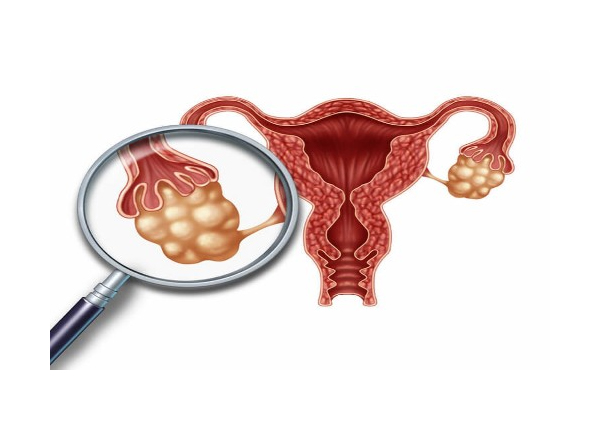
Polycystic Ovary Syndrome (PCOS), often referred to as Polycystic Ovarian Disease, is a common hormonal disorder affecting people with ovaries, particularly during their reproductive years. PCOS is characterized by a range of symptoms, and its exact cause is not well understood. Here are some key points about PCOS:
-
Symptoms: PCOS can present with various symptoms, which may include irregular menstrual cycles, excessive hair growth (hirsutism), acne, and polycystic ovaries seen on ultrasound. Some individuals with PCOS may also experience weight gain, insulin resistance, and difficulties with fertility.
-
Diagnosis: The diagnosis of PCOS is typically based on the presence of specific symptoms and the exclusion of other conditions. Diagnostic criteria include irregular menstrual cycles, signs of excess androgen (male hormones), and the appearance of polycystic ovaries on ultrasound.
-
Causes: The exact cause of PCOS is unknown, but it is believed to involve a combination of genetic and environmental factors. Insulin resistance, where the body's cells don't respond effectively to insulin, is often associated with PCOS. High levels of insulin can contribute to increased androgen production.
-
Hormonal imbalance: Women with PCOS often have higher levels of androgens (male hormones) than normal. This hormonal imbalance can lead to irregular ovulation and the formation of small cysts on the ovaries.
-
Impact on fertility: PCOS is a common cause of infertility due to irregular ovulation. However, many women with PCOS can conceive with appropriate medical interventions, such as medications to induce ovulation.
-
Management: Treatment for PCOS focuses on managing symptoms and addressing associated health concerns. Lifestyle changes, including a healthy diet, regular exercise, and weight management, are often recommended. Medications, such as hormonal contraceptives, anti-androgens, and insulin-sensitizing drugs, may be prescribed to manage specific symptoms.
-
Long-term health implications: PCOS is associated with an increased risk of other health conditions, such as type 2 diabetes, cardiovascular disease, and endometrial cancer. Regular medical check-ups and proactive management of associated health risks are important.
If you suspect you have PCOS or are experiencing symptoms associated with the condition, it's crucial to consult with a healthcare professional. They can conduct a thorough evaluation, order relevant tests, and recommend an appropriate treatment plan tailored to your individual needs. Early diagnosis and management can help prevent long-term complications and improve overall health outcomes.
